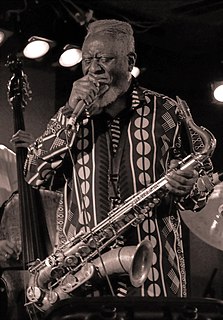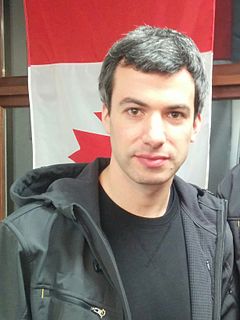A Quote by John Green
"Nothing," I said. "I’m just…" I couldn’t finish the sentence, didn’t know how to. "I’m just very, very fond of you."
Related Quotes
Just supposing," he said, "just supposing" --he didn't know what was coming next, so he thought he'd just sit back and listen--"that there was some extraordinary way in which you were very important to me, and that, though you didn't know it, I was very important to you, but it all went for nothing because we only had five miles and I was a stupid idiot at knowing how to say something very important to someone I've only just met and not crash into lorries a the same time, what would you say..." He paused, helplessly, and looked at her. "I should do.
This is very important -- to take leisure time. Pace is the essence. Without stopping entirely and doing nothing at all for great periods, you're gonna lose everything...just to do nothing at all, very, very important. And how many people do this in modern society? Very few. That's why they're all totally mad, frustrated, angry and hateful.
Believe nothing just because a so-called wise person said it. Believe nothing just because a belief is generally held. Believe nothing just because it is said in ancient books. Believe nothing just because it is said to be of divine origin. Believe nothing just because someone else believes it. Believe only what you yourself test and judge to be true.
We don’t need a cure,” the other zombie said. “That’s right,” Scapegrace nodded. “We’re happy the way we are.” “Happy with the power,” Scapegrace clarified. “Very happy, just the two of us, and there’s nothing wrong with us either. It’s very natural in fact. Nothing to be ashamed of—” “Thrasher,” said Scapegrace, “shut up.
The book works better if I know everything I can about the ending. Not just what happens, but how it happens and what the language is; not just the last sentence, but enough of the sentences surrounding that last sentence to know what the tone of voice is. I imagined it as something almost musical. Then you are writing toward something; you know the sound of your voice at the end of the story. That's how you want to sound in those final sentences: the degree that it is uplifting or not, the degree that it is melancholic or not.
I think some of this just feels right. You're in the shower and you come up with a sentence and it's beautiful. You don't know how it's going to fit in the film, but you put it in because it feels right. This is a very long way of saying, so much of it is me feeling like I'm catching ideas rather than coming up with ideas. It's very fluid like that.
At a lecture, a guy said to me, "You know, when I look at your work, I don't know what I'm looking at, but when I look at a Willem de Kooning painting, I know what that is." I said, "Well, the paintings I'm doing have a very legible sentence at the top of the canvas." At a lecture, a guy said to me, "You know, when I look at your work, I don't know what I'm looking at, but when I look at a de Kooning painting, I know what that is." I said, "Well, the paintings I'm doing have a very legible sentence at the top of the canvas."
That doesn't make any sense. Sorry. There's no known way of saying an English sentence in which you begin a sentence with "in" and emphasize it. Get me a jury and show me how you can say
"In July" and I'll go down on you. That's just idiotic, if you'll forgive me for saying so. It's just stupid... "In July"; I'd love to know how you emphasize "In" in "In July". Impossible!
Meaningless!


































